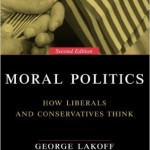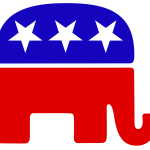For our twenty-fifth anniversary, Cathy and I went to England and Scotland and had a “smashing time.” We stayed in London for a couple of days at either end of our trip, but for the most of it we lit out for the hinterlands to wander along Hadrian’s Wall, explore the Lake District (both in Northern England not far from Scotland’s border, and then to Edinburgh for nearly a week of steeping ourselves in the history and sights of Scotland. It was wonderful.
I think pretty much everyone has a wee bit o’ Scotland in them, particularly when enjoying a nice single malt. In my case it’s reinforced with an ancestral connection. I admit it’s a tenuous link, but there nonetheless; my grandfather several times removed on Mom’s side was one Angus Cowan, late of Scotland. And a bit of research led me to the fact that although the Cowans were apparently of little historical interest, they were related to the Calhouns, who had their own tartan. Perhaps influenced by a little Scotch tasting prior to walking by the store, I decided it would be a great idea to honor my Scottish heritage by buying a kilt in the family (?) tartan.  OK, so for a half-Australian-half-Mayflower-American (with maybe a little Dutch thrown in for good measure) that’s a bit of a stretch, but what the hell. It was a VERY nice Scotch tasting. And truth be told, I had been thinking it would be cool to own a kilt ever since my sister Kathleen developed an interest in Scotland and made me realize what a damn cool little country it is. Not to mention the Angus Cowan connection and all.
OK, so for a half-Australian-half-Mayflower-American (with maybe a little Dutch thrown in for good measure) that’s a bit of a stretch, but what the hell. It was a VERY nice Scotch tasting. And truth be told, I had been thinking it would be cool to own a kilt ever since my sister Kathleen developed an interest in Scotland and made me realize what a damn cool little country it is. Not to mention the Angus Cowan connection and all.
Anyway, I’m a little fuzzy on the chronological sequence, but during that week we also toured the Edinburgh Castle and Holyroodhouse (the residence the British royal family occupies when she’s visiting), and toured the Highlands (actually, a pretty small section of them in southern Scotland), and became enamored with the Scottish history. A good case can be made that The Enlightenment started in Scotland; it’s clear that Scottish philosophers and scholars contributed mightily to it at the very least. It’s also true that much of England’s fighting in the 17th, 18th and 19th centuries was done by Scottish highlanders; even today images of kilt-wearing, bag-pipe playing soldiers marching into cannon fire stirs even the least-patriotic heart. (At least it does if you’ve had a wee dram of two.)
Growing up as a JW doesn’t lend itself to much in the way of martial activities; we didn’t play soldier, join the Boy Scouts or any of that stuff, as being too connected to a militaristic view. While we didn’t consider ourselves pacifists (opposed to all war), we didn’t support (nor did we oppose) our military; we viewed ourselves as separate from it. This in spite of the fact that Dad served as a naval officer during World War II, and was proud enough of it that he specifically wanted it mentioned in his obituary at his death. Interesting dichotomy there, but that’s for another post.
 So anyway, I wasn’t militaristic, and didn’t think of myself of a patriot. So it’s interesting to me that when we were touring the Edinburgh Castle and came to the Scottish National War Memorial, how profoundly it affected me. We had decided to spend the day wandering around the castle (it’s huge, and made up of numerous buildings, battlements, residences and museums); I didn’t even know there was a war memorial until I was in front of it. Originally constructed after the end of WWI to honor the fallen of that war, it now is dedicated to Scots (men, women and even animals) in all the conflicts since then as well. There were friezes of Scotsmen going into battle in World War I, World War II, and even a room dedicated to the animals who supported the troops in war (horses, mules, even dogs and camels). At any rate, as I was wandering through the various rooms of the memorial, looking at the paintings, friezes, statues, battalion flags and the like, suddenly a powerful feeling of connection to the soldiers came over me.
So anyway, I wasn’t militaristic, and didn’t think of myself of a patriot. So it’s interesting to me that when we were touring the Edinburgh Castle and came to the Scottish National War Memorial, how profoundly it affected me. We had decided to spend the day wandering around the castle (it’s huge, and made up of numerous buildings, battlements, residences and museums); I didn’t even know there was a war memorial until I was in front of it. Originally constructed after the end of WWI to honor the fallen of that war, it now is dedicated to Scots (men, women and even animals) in all the conflicts since then as well. There were friezes of Scotsmen going into battle in World War I, World War II, and even a room dedicated to the animals who supported the troops in war (horses, mules, even dogs and camels). At any rate, as I was wandering through the various rooms of the memorial, looking at the paintings, friezes, statues, battalion flags and the like, suddenly a powerful feeling of connection to the soldiers came over me.  I won’t say it was a recollection (obviously I hadn’t been there!) but that’s as close as I can come to describing it. I felt like I understood how they felt; the anticipation of the battle, the connection to their fellow soldiers, even their fear. There was also an almost overwhelming feeling of sadness and loss at the same time. My eyes actually filled with tears and I had to leave. It took me completely by surprise.
I won’t say it was a recollection (obviously I hadn’t been there!) but that’s as close as I can come to describing it. I felt like I understood how they felt; the anticipation of the battle, the connection to their fellow soldiers, even their fear. There was also an almost overwhelming feeling of sadness and loss at the same time. My eyes actually filled with tears and I had to leave. It took me completely by surprise.
Even now I can get back into that moment with very little effort. I really can’t explain it. Maybe it was triggered by my new-found connection to Scotland (being a proud owner of a kilt and all!) But if there is such a thing as reincarnation I would suspect I must have been a soldier in a past life.

 You hear a lot today about how “broken” Washington is. It’s true, Congress has the lowest approval ratings (for both parties) in current memory, and the last few sessions (with Republicans holding both houses) have been focused on doing little more than preventing any initiatives proposed by Obama’s administration from having a prayer. And I’ve commented before that I think that the successes that both Trump and Sanders have enjoyed during the primaries represents a “no-confidence” vote on the part of a significant number from each party for the party leadership (or perhaps against “business as usual” in Washington). Pretty much everyone agrees that our elected leaders are just not doing their job. “Why can’t anyone get anything done?” is what I hear a lot. The obvious implication being that somehow, once the legislators gets to Washington and the legislative session begins, they all forget what they were elected to do. That Washington is broken is “their fault.” But I think that’s exactly wrong. I think they are doing precisely what they were elected to do; the problem lies not in Washington, but in each home district. In other words, we have exactly the government we want.
You hear a lot today about how “broken” Washington is. It’s true, Congress has the lowest approval ratings (for both parties) in current memory, and the last few sessions (with Republicans holding both houses) have been focused on doing little more than preventing any initiatives proposed by Obama’s administration from having a prayer. And I’ve commented before that I think that the successes that both Trump and Sanders have enjoyed during the primaries represents a “no-confidence” vote on the part of a significant number from each party for the party leadership (or perhaps against “business as usual” in Washington). Pretty much everyone agrees that our elected leaders are just not doing their job. “Why can’t anyone get anything done?” is what I hear a lot. The obvious implication being that somehow, once the legislators gets to Washington and the legislative session begins, they all forget what they were elected to do. That Washington is broken is “their fault.” But I think that’s exactly wrong. I think they are doing precisely what they were elected to do; the problem lies not in Washington, but in each home district. In other words, we have exactly the government we want. a governor in Massachusetts in the early 1800s who re-drew the boundaries of his district to include areas where his supporters dominated and excluded areas where he lacked support. This effectively ensured his re-election as long as he continued to run for office. The name came from the conflation of his name and the fact that his new district looked a little like a salamander (right). The practice was copied by other politicians until it became the norm. Since members of the US Senate are elected in a statewide election (and state lines are not redrawn very easily), gerrymandering doesn’t apply in Senatorial elections but is common in House elections. As the demographics shifts, you’ll see lots of reshuffling and redrawing of districts (by both Democrats and Republicans).
a governor in Massachusetts in the early 1800s who re-drew the boundaries of his district to include areas where his supporters dominated and excluded areas where he lacked support. This effectively ensured his re-election as long as he continued to run for office. The name came from the conflation of his name and the fact that his new district looked a little like a salamander (right). The practice was copied by other politicians until it became the norm. Since members of the US Senate are elected in a statewide election (and state lines are not redrawn very easily), gerrymandering doesn’t apply in Senatorial elections but is common in House elections. As the demographics shifts, you’ll see lots of reshuffling and redrawing of districts (by both Democrats and Republicans). Actually, lots of them, but I’m thinking of one in particular here: Now that he’s the presumptive nominee for the Republican party in the upcoming presidential election, he has to figure out whether to pivot.
Actually, lots of them, but I’m thinking of one in particular here: Now that he’s the presumptive nominee for the Republican party in the upcoming presidential election, he has to figure out whether to pivot. I read a book a while ago by George Lakoff, a cognitive and linguistic scientist from Berkely (naturally) titled “
I read a book a while ago by George Lakoff, a cognitive and linguistic scientist from Berkely (naturally) titled “ In my last entry I wrote about how too many of us have created an environment where we only hear what we want to hear. I think how I may be guilty of this as well; at least to some extent. After all, when I listen to jackasses like Rush Limbaugh and Donald Trump spew hatred, racial invective and errors of logic (horrors!!), I just get angry. And since I’m trying to develop a more peaceful, accepting and forgiving side to my personality (good luck with that, Bill), why should I deliberately expose myself to things that are going to make me mad? (A bit of tortured syntax there, but I think you get my idea.)
In my last entry I wrote about how too many of us have created an environment where we only hear what we want to hear. I think how I may be guilty of this as well; at least to some extent. After all, when I listen to jackasses like Rush Limbaugh and Donald Trump spew hatred, racial invective and errors of logic (horrors!!), I just get angry. And since I’m trying to develop a more peaceful, accepting and forgiving side to my personality (good luck with that, Bill), why should I deliberately expose myself to things that are going to make me mad? (A bit of tortured syntax there, but I think you get my idea.) About the only time I will watch Fox News is if I want to see how stupid people can be. Their broadcasts are full of errors of logic (I think they’re deliberate), one-sided commentary and over-simplification. I have friends who get virtually all their information from Fox and tell me they like it because it’s “fair and balanced.”
About the only time I will watch Fox News is if I want to see how stupid people can be. Their broadcasts are full of errors of logic (I think they’re deliberate), one-sided commentary and over-simplification. I have friends who get virtually all their information from Fox and tell me they like it because it’s “fair and balanced.” In my last post I set up an explanation for the chaos I see in the Republican party today. I think the two front runners (Trump and Cruz) represent very different unforeseen outcomes from that decision 40 years ago to “reset” the Republican party to make it more appealing to fundamental, mostly blue-collar Christians.
In my last post I set up an explanation for the chaos I see in the Republican party today. I think the two front runners (Trump and Cruz) represent very different unforeseen outcomes from that decision 40 years ago to “reset” the Republican party to make it more appealing to fundamental, mostly blue-collar Christians.
Can morality be compartmentalized?
Many years ago, some good friends of mine posed a question to me. They wanted to know if I thought that someone who cheated on their spouse could be trusted in business. It wasn’t a casual question to them; they were concerned because they had discovered someone they were working with had done so and wanted my opinion. I assume they were considering whether they should end their working relationship because they didn’t think they could trust their partner who had an adulterous relationship. (They made it clear this wasn’t a one-time thing but a life-pattern for this person.)
On the surface, this seems like a no brainer. Of course you can; people do it all the time. I know people who would never dream of going back on their agreement in business, who have also had affairs. I’ve also known people who have no qualms about “sharp business practices” (a euphemism for being less than completely honest in their business dealings), but are proud of never having had affairs.
But think about it a bit. Marriage is the most intimate of all relationships. And marriage vows are viewed as a contract. So how could you trust someone in a business situation when they are willing to lie (either explicitly or by omission) to the person with whom they are in the most fundamental of all relationships?
The water is muddy. Most experts say that we don’t know exactly how many people in a relationship cheat; we can’t even say for sure how “cheating” is defined. Is cybersex cheating? Some people feel it is; others don’t. Then, scientists have no reliable way of knowing when people respond on surveys if they’re telling the truth. It’s hard to get people to be honest if that would mean admitting to something that society feels is wrong. The Kinsey studies done in the 50’s are pretty widely viewed today as being incorrect either in methodology or conclusions; mailed surveys may be flawed or not statistically valid, etc. etc. etc. Also, simply remaining monogamous may or not be what’s important; people in open relationships may not expect monogamy from their partners. And are you “moral” if you have slept with someone other than your partner, if you didn’t lie to them about it?
Also, when it comes to questions of morality it seems to me that there is some kind of gradation involved. It’s a combination of the “seriousness” of the deed coupled with frequency. For example, does taking a life make me a murderer? Most would agree it does. But does telling one lie make me a liar? Most would say it might, but the context is important. How big a lie? What was my intent? Is it part of a pattern? And so forth. So does having an affair make a person an adulterer? Technically, I suppose it does, but I also think there is a difference between a person who has a one-night stand after drinking too much, and a guy I know who has had a girlfriend (or several) on the side throughout his marriage.
But back to my friends’ question. They were in a business relationship with a person whom they knew to be cheating on his wife. They were asking me a very practical question about whether I thought this person could (and should) be trusted in business. I happened to know the man well, and I viewed him to be an honest man in business. I suspect he was able to convince himself that the two issues were completely separate. I imagined he had rationalized his cheating to himself; “I really do love my wife; I provide well for her and our kids; it’s just physical and I don’t care for the other women like I do my wife” and on and on.
As I consider this question now, I think that attempting to explain this as compartmentalization is all nothing more than hand-waving rationalization. I think that a standard of morality applies to everything. People may think that they are honest people if they don’t cheat on taxes or if they always honor their agreements in business, but if they have an affair, they are lying to their wife (or husband) and are not living up to their self-established standards. It’s true, they probably have convinced themselves that they are not really being dishonest, but I think that type of compartmentalization is nothing more than an attempt to dodge the reality.
It goes to the concept of the Good Life that I’ve written about previously; I establish the type of person I want to be through careful thought and introspection, and then I try to live up to that. If I view myself as an honest man, I cannot then be honest in one facet of my life (say, business) and have it be OK to lie to Cathy. Or even myself.
Especially myself.
(Editorial note: as I re-read this, it occurs to me that this may look like a thinly-veiled confession. It isn’t.)